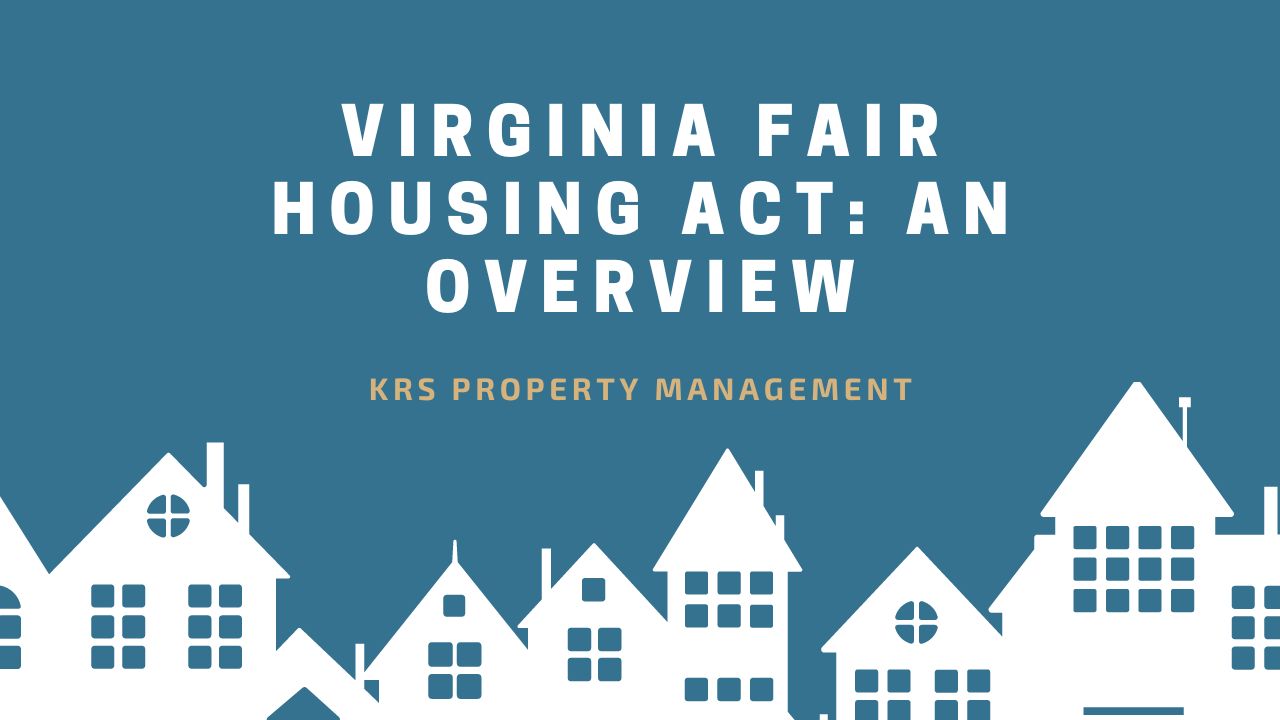
Are you renting out a property in Virginia? Understanding the housing laws in the state is vital!
Owning a rental property can be very lucrative. That said, being a landlord is a huge undertaking. Among the numerous responsibilities you’ll have, landlords also have to know and comply with Fair Housing Laws.
As a savvy Virginia residential landlord, you must stay legally compliant with both local and federal landlord-tenant laws before you rent out your Virginia property. Engaging in housing discrimination practices could make you liable to hefty legal fines. In addition to this, you may also be liable for paying your tenant’s court and attorney fees.
If you want to remain legally compliant, here is an overview of the state's and Federal Fair Housing Act!
What are Virginia Fair Housing Laws?
These are laws that are meant to shield renters, home buyers, and mortgage applicants from housing-related discrimination practices. Mortgage lenders, real estate agents, landlords, and other housing providers are expected to adhere to the Fair Housing requirements.
The Fair Housing Law guarantees a person’s right to obtain housing regardless of 7 protected classes including familial status, religion, national origin, sex, color, race, and disability. Here's a closer look at these fair housing protected classes:
- Race: You cannot deny housing or show preference to an applicant because of their race.
- Color: You must treat all rental applicants equally regardless of the color of their skin.
- Religion: It would be illegal to deny someone a housing opportunity based on the faith they profess.
- Nationality: Your policies and regulations should be non-discriminatory regardless of a person's national race.

- Familial Status: You must not deny an applicant the opportunity to rent your home solely based on how many children (under 18 years) they have. Check local occupancy rules to know the maximum number of people that can occupy one bedroom.
- Disability: People with disabilities have a right to equal and fair treatment when it comes to housing matters.
- Military Status: This protection extends to members of the uniformed forces or reserves, veterans, or a dependent as the law may define.
- Gender Identity: It would also be illegal to discriminate against someone based on their gender identity.
- Source of funds: Tenant, home buyers, and mortgage applicants are also protected against discrimination based on a lawful income source. The sources may be subsidy programs, benefits, or assistance.
- Sexual Orientation: Regardless of a person’s sexual orientation, they have a right to equal and fair treatment when it comes to housing matters.
- Elderliness: This applies to those individuals who are 55 years old or older. It’d be illegal for you to deny such people housing opportunities just because of their age.
- Sex: It’d be illegal for you to have a gender preference when you rent out your rental house. You must treat all sexes equally.
What Government Agency Handles the Enforcement of the Virginia Fair Housing Law?
The government agency tasked with this responsibility is the Virginia Fair Housing Board.

The Fair housing office accepts complaints that qualify as discrimination under law. The following are actions that the board may interpret as prohibited discriminatory housing practices:
- Lying about the availability of a rental house
- Offering tenants of different protected classes different terms or conditions in their lease agreements
- Refusing to grant disabled renters a request for reasonable modifications or accommodations
- Steering tenants away from neighborhoods because of their familial status, religion, national origin, sex, or color.
- Asking discriminatory questions during the renter screening
- Failing to handle maintenance issues properly as a result of not having a clear maintenance response policy
What are the Exemptions to the Federal Fair Housing Act?
In very limited circumstances, the Fair Housing policy makes the following exemptions:
- Single-family homes that the owner rents out without using any brokerage services. The owner must not own more than 3 homes at a time and must not include discriminatory phrases in the marketing ad.
- A dwelling has a maximum of four units, and the owner occupies one of the units.
- Residential housing for the elderly people. The home must be solely occupied by renters aged 55 years and above.
- Housing that is operated by private or religious organizations.
How Can Landlords Avoid Housing Discrimination Claims in Virginia?
The following are 3 tips to help you stay compliant with the Virginia Fair Housing Act:
Have a Consistent Tenant Screening Process
The renter screening process is often a source for housing discrimination claims, especially for new property owners. When screening a tenant , make sure to go through the same process for every potential tenant to remain in compliance with the Virginia Fair Housing Law.

Require every potential renter to provide you with the same documents and pay the same fees where applicable. It would help if you also treated each applicant with respect and dignity.
The following are screening questions you’ll want to avoid asking prospective tenants:
- How many children do you have?
- Are you gay?
- How old are you?
- Are you a Christian?
- Is that a service dog or other kind of assistance animal?
- What’s your ethnicity?
These questions discriminate based on a person's familial status, sexual orientation, gender identity, national origin, religion, and disability and can result in a fair housing complaint.
Draft a Proper Ad per the Virginia Fair Housing Law
Your rental ad must not be seen to provide limitations or preference to tenants based on their familial status, religion, national origin, sex, or any other protected class. The following are discriminatory phrases that you must avoid including in a rental ad when advertising your unit:
- Ideal for a Female Student
- Ideal for a Single Professional
- Christians Preferred
- No Pets Allowed
- Not ideal for assistance pets
Instead, focus on the unique qualities that make your property stand out to avoid claims of housing discrimination.
Hire a Property Management Company
If you are not familiar with your legal obligations under the Fair Housing Laws, hiring an experienced property manager could be a smart move. Good property managers will have a good understanding of the relevant Virginia legislation and federal law such as security deposit limits, rent increase policies and regulations, and the proper eviction process, and will help you stay compliant.
And that’s not the only help they can offer. They can also help fill your vacancies, collect rent, maintain the unit, and file your returns during the tax season.
Bottom Line
Understanding and abiding by the Fair Housing Act will give assistance to your rental business stay legally compliant. Do you still have a question regarding the Virginia Fair Housing Act? If so, KRS Holdings can help you make sense of the Fair Housing Act! Our goal is to help property owners in Richmond achieve peace of mind and maximize their earnings. Get in touch to learn more and get your free rental pricing analysis!
Disclaimer: This blog should not be used as a substitute for legal advice from a licensed attorney in your state. Laws change, and this post might not be updated at the time of your reading. Please contact us for any questions you have in regard to this content or any other aspect of your property management needs.






